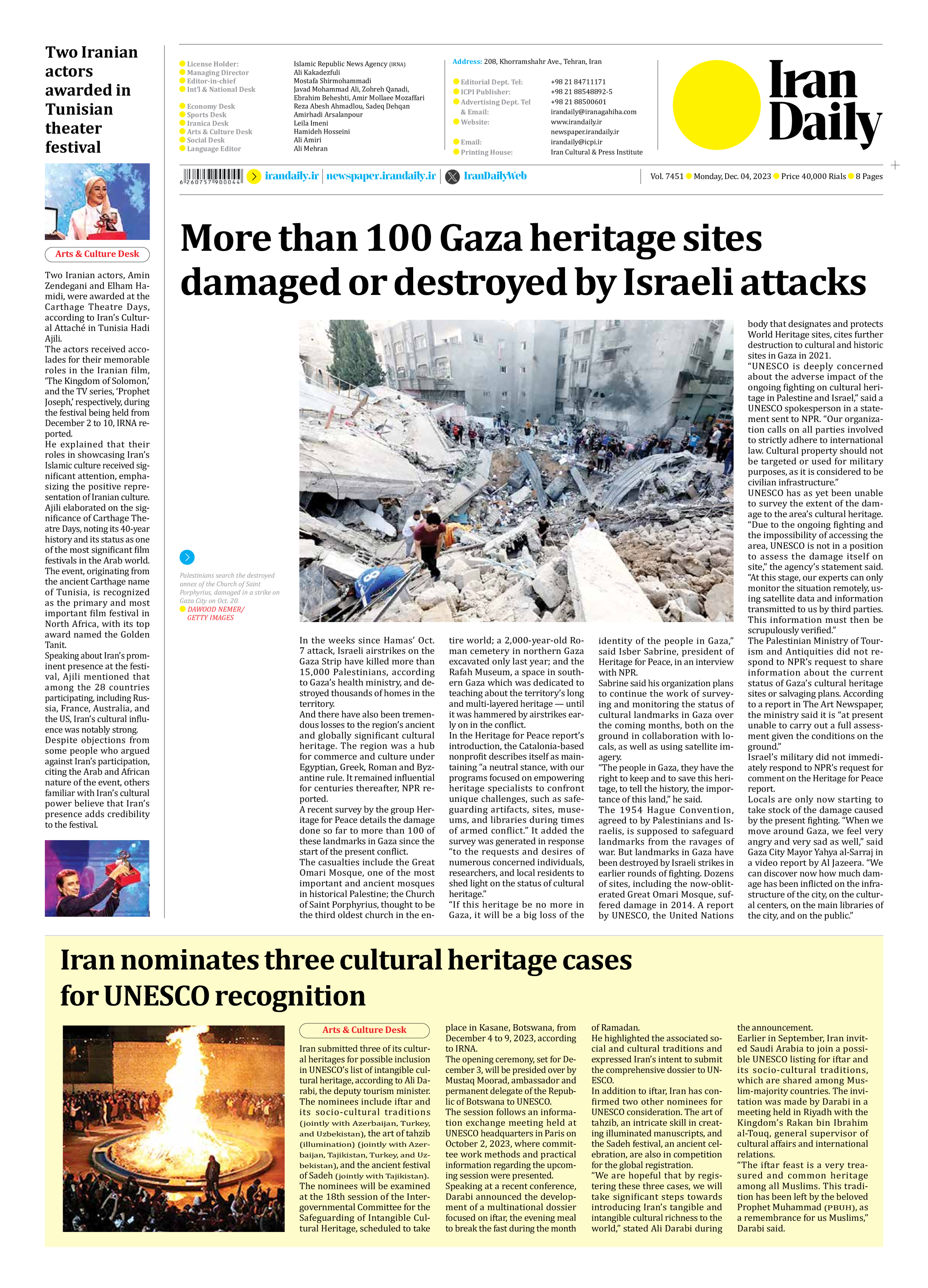
Iran nominates three cultural heritage cases for UNESCO recognition
Iran submitted three of its cultural heritages for possible inclusion in UNESCO’s list of intangible cultural heritage, according to Ali Darabi, the deputy tourism minister.
The nominees include iftar and its socio-cultural traditions (jointly with Azerbaijan, Turkey, and Uzbekistan), the art of tahzib (illumination) (jointly with Azerbaijan, Tajikistan, Turkey, and Uzbekistan), and the ancient festival of Sadeh (jointly with Tajikistan).
The nominees will be examined at the 18th session of the Intergovernmental Committee for the Safeguarding of Intangible Cultural Heritage, scheduled to take place in Kasane, Botswana, from December 4 to 9, 2023, according to IRNA.
The opening ceremony, set for December 3, will be presided over by Mustaq Moorad, ambassador and permanent delegate of the Republic of Botswana to UNESCO.
The session follows an information exchange meeting held at UNESCO headquarters in Paris on October 2, 2023, where committee work methods and practical information regarding the upcoming session were presented.
Speaking at a recent conference, Darabi announced the development of a multinational dossier focused on iftar, the evening meal to break the fast during the month of Ramadan.
He highlighted the associated social and cultural traditions and expressed Iran’s intent to submit the comprehensive dossier to UNESCO.
In addition to iftar, Iran has confirmed two other nominees for UNESCO consideration. The art of tahzib, an intricate skill in creating illuminated manuscripts, and the Sadeh festival, an ancient celebration, are also in competition for the global registration.
“We are hopeful that by registering these three cases, we will take significant steps towards introducing Iran’s tangible and intangible cultural richness to the world,” stated Ali Darabi during the announcement.
Earlier in September, Iran invited Saudi Arabia to join a possible UNESCO listing for iftar and its socio-cultural traditions, which are shared among Muslim-majority countries. The invitation was made by Darabi in a meeting held in Riyadh with the Kingdom’s Rakan bin Ibrahim al-Touq, general supervisor of cultural affairs and international relations.
“The iftar feast is a very treasured and common heritage among all Muslims. This tradition has been left by the beloved Prophet Muhammad (PBUH), as a remembrance for us Muslims,” Darabi said.







